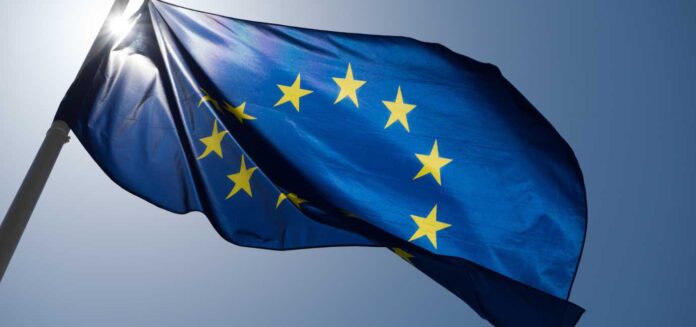Strange to think of an emerging market country in Europe, perhaps, but with GDP per capita at almost half the EU average, Ed Butchart of Corinium Emerging Markets, argues Poland is one of the brightest spots in the EM universe.
“Emerging markets” can be a deceiving term – many countries classified as ‘emerging’ have struggled ultimately to emerge. They remain stuck as low-income indefinitely, failing to close the income gap with developed nations. But sometimes the macroeconomic and geopolitical stars align to create the conditions for a true emerging markets success story.
Europe may not seem the obvious breeding ground for such a success, but today it is home to one of the brightest spots in emerging markets – Poland. Poland, a country of 38 million people with approximately $21,000 GDP per capita, is on a clear upward trajectory. Current GDP per capita is almost half the EU average, already up from a quarter of the average two decades ago. A decade or so from now, GDP per capita should equate to three quarters of the EU average, according to projections by Oxford Economics.
That would put Poland on par with developed Southern European countries including Italy and Spain – an impressive transformation, catalysed by Poland joining the EU in 2004. EU membership helped integrate a lower-income country with a richer region, boosting foreign investment and exports to Europe.
Jettisoning populists
However, the central factor in the resurgence of Poland as an investment opportunity is its jettisoning of populist government. The Law and Justice party, in power from 2015 to 2023, was at constant loggerheads with the EU, not least over the rule of law. The then-government undermined the independence of Poland’s constitutional court by imposing its own appointees, and the court went on to challenge the primacy of EU law.
WEBINAR: Emerging market opportunities – A macro and micro perspective
This fractious relationship prompted the EU to hold back funding for Poland. The country has yet to receive any of the $75 billion allocation from the latest budget of the EU’s Cohesion Fund, which provides support to poorer member states. The post-pandemic recovery fund should also have brought an influx of $35 billion in loans and $25 billion in grants, but payments were again withheld. In total, funds equating to around 17% of Poland’s GDP were blocked.
Last October’s parliamentary election was a turning point. It saw the best possible outcome for the continuation of Poland’s upward trajectory and prompted the highest voter turnout of any post-communist Polish election, as the country’s population voted resoundingly for closer ties with the EU. With Prime Minister Donald Tusk and the Civic Platform party leading the new coalition, EU-Poland relations have already thawed and funding is starting to be released. On February 23rd, Brussels announced that it will begin unblocking up to €137 billion of funds for Poland.
Turning back westwards
Although change will not be instantaneous – some obstacles remain, such as President Andrzej Duda’s alignment with the Law and Justice Party – a five-year roadmap is being laid out that should mean the equivalent of 2-3% of Poland’s GDP flowing into the country each year via EU funding. There is a geopolitical benefit for the EU too, given the desire to keep Eastern European countries close following recent troubles in the region. The EU is taking advantage of Poland’s gift of an election result to help Donald Tusk turn Poland back westwards.
Poland’s realignment with the EU is set to turbocharge GDP growth beyond current projections of roughly 3% per annum.
Poland’s resurgence fits into the wider economic rebirth of post-Soviet states. By next decade, the 11 ex-communist EU members are expected to have roughly the same growth per capita as Southern European countries. Of these, Poland has the deepest stock market with the most compelling equity stories.
Promising stocks
A couple of stocks look particularly promising. Supermarket chain Dino Polska is an attractive top-line growth opportunity, with expansion of its national footprint set to double store count by the end of the decade. Pekao, Poland’s second largest bank, is a good value play. With the Law and Justice party no longer in power, challenges such as a banking windfall tax and increasingly burdensome regulatory requirements should start to ease under a new, more business-friendly administration. Pekao is cheap, currently trading on 1.4x book value and 9x earnings, plus a February dividend announcement that equates to over an 11% dividend yield.
Investors poised to go overweight in emerging markets by end-2025
Poland represents a compelling investment opportunity. But the country currently comprises less than 1% of emerging market benchmarks. Investors seeking exposure to this promising market will need to look beyond a passive global tracker fund if they are to capture the potential upside. And the particular merit of a global emerging market fund, as opposed to a region-specific fund, is that it can move in and out of specific countries as and when circumstances dictate. There are usually two or three particularly interesting markets at any point in time, but these themes can change – sometimes quite quickly – so nimbleness to adjust portfolio composition is a major advantage.
With bright spots like Poland, the emerging markets landscape looks more promising than it has for many years; now is the time for investors to consider how best to access the alpha available.
*Ed Butchart, CIO and portfolio manager, Corinium Emerging Markets.
The Corinium Emerging Markets investment team manages two funds on Kepler Partners’ Ucits umbrella platform, Kepler Liquid Strategies: KLS Corinium Emerging Markets All Weather Fund and the KLS Corinium Emerging Markets Equity Fund.





